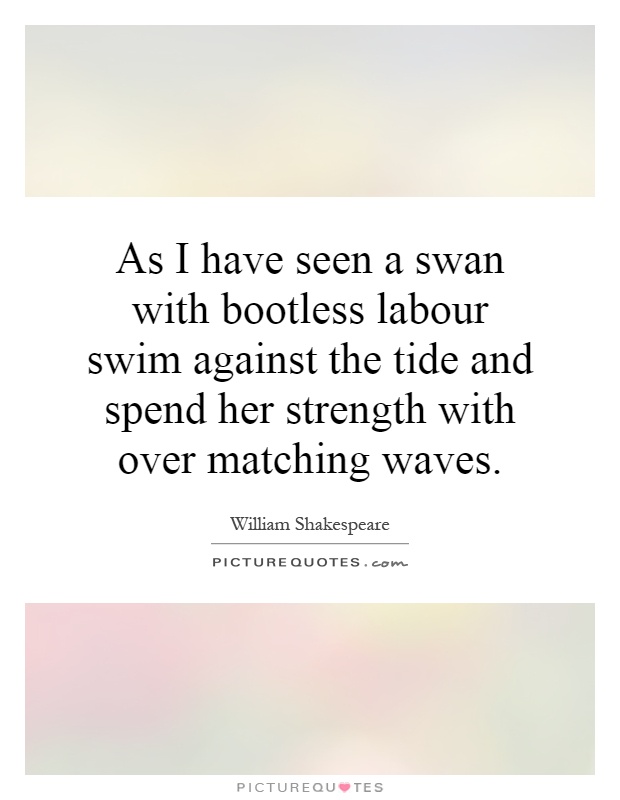As I have seen a swan with bootless labour swim against the tide and spend her strength with over matching waves

As I have seen a swan with bootless labour swim against the tide and spend her strength with over matching waves
The quote "As I have seen a swan with bootless labour swim against the tide and spend her strength with over matching waves" is a powerful metaphor used by William Shakespeare to illustrate the futility of going against the natural order of things. In this quote, the swan represents an individual or entity that is struggling against insurmountable odds, trying to achieve something that is ultimately impossible.Shakespeare often used nature as a metaphor for human behavior and emotions in his works, and this quote is no exception. The image of a swan swimming against the tide evokes a sense of struggle and desperation, as the bird expends all its energy in a futile attempt to overcome the forces working against it. The phrase "bootless labour" emphasizes the pointlessness of the swan's efforts, highlighting the fact that no matter how hard it tries, it will never succeed in its goal.
The idea of going against the tide is a common theme in Shakespeare's plays, as many of his characters find themselves in situations where they are forced to swim against the current of society or fate. Whether it is Romeo and Juliet defying their families to be together, or Hamlet seeking revenge against his uncle, Shakespeare's characters often face seemingly insurmountable obstacles that they must overcome in order to achieve their goals.
The quote also speaks to the larger theme of fate and destiny in Shakespeare's works. Just as the swan is doomed to fail in its efforts to swim against the tide, so too are many of Shakespeare's characters destined to meet tragic ends due to the circumstances of their lives. The idea of "over matching waves" suggests that there are forces at work that are beyond the control of the individual, and that no amount of effort or determination can change the outcome.
Overall, this quote from Shakespeare serves as a poignant reminder of the limitations of human agency in the face of larger forces at work in the world. It is a powerful metaphor that captures the essence of struggle and futility, and serves as a warning against the hubris of trying to defy the natural order of things.












 Friendship Quotes
Friendship Quotes Love Quotes
Love Quotes Life Quotes
Life Quotes Funny Quotes
Funny Quotes Motivational Quotes
Motivational Quotes Inspirational Quotes
Inspirational Quotes